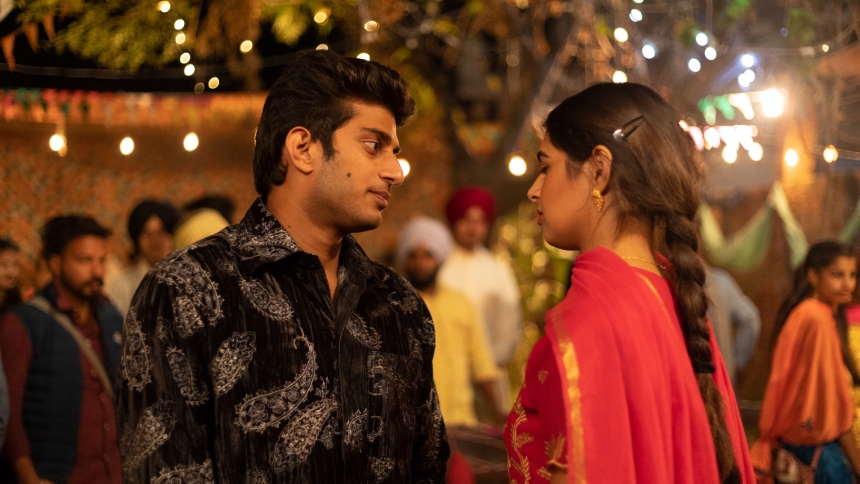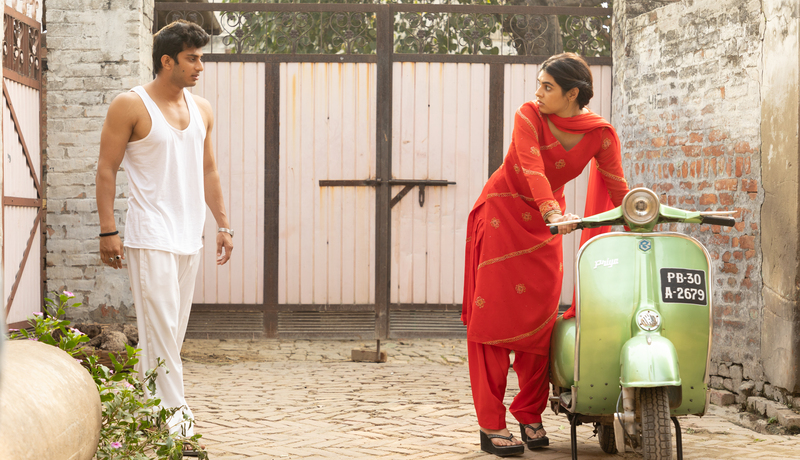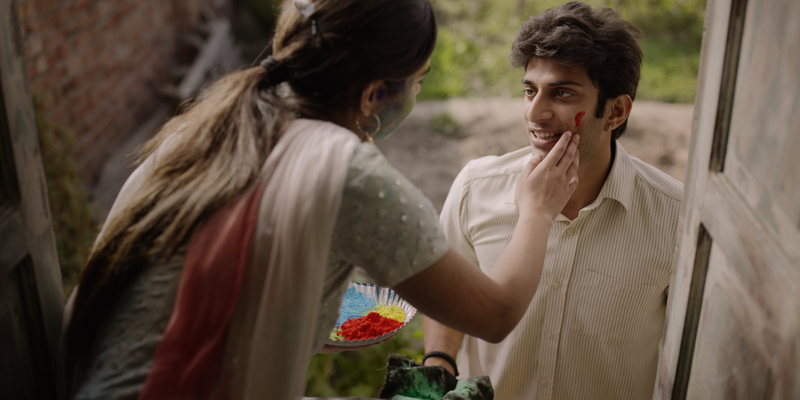Mediterrane 2024 Review: DEAR JASSI, Love, Social Class, and True Crime Mix
Director Tarsem Singh Dhandwar departs from his renowned visual opulence to explore a true crime story deeply rooted in the cultural fabric of Punjab in his latest cinematic venture.

Director Tarsem Singh Dhandwar, known for The Fall and Immortals, returns to the big screen with his first Indian film, Dear Jassi, a venture into the true crime genre (read our interview with him about the film).
His distinctive maximalist style, marked by a strong visual flair, is evident yet subdued in this film. However, Dear Jassi, written by Amit Rai, represents a shift towards a more grounded approach, although Singh's characteristic aesthetic still permeates the narrative, albeit in smaller scale.
Dear Jassi diverges from Singh's previous films as a personal and culturally rooted project. Unlike the fable storytelling of The Fall or the mythic overtones of Immortals, Dear Jassi is anchored in the stark realities of societal and familial constraints in Punjab.
Singh employs a Punjabi folk style to narrate this story, adding cultural resonance while maintaining the formalistic flair characteristic of his earlier works. The film's narrative structure echoes the oral traditions of folk tales, despite being a retelling of the actual case of Jaswinder Kaur "Jassi" Sidhu from the early 2000s.
The film is acknowledged as a Romeo and Juliet story from the outset, establishing the framing and tone of the narrative. Dear Jassi initially unfolds as a coming-of-age teen romance, with newcomers Pavia Sidhu and Yugam Sood starring in the leading roles. Sidhu portrays Jassi, a Canadian-born young woman who frequently travels between Canada and India. She works in a nail salon in Canada while socializing with her cousin in India.
Sood stars as Mithu, the boy next door, an illiterate rickshaw driver who competes in Kabbadi. Jassi, portrayed by Sidhu, is the dominant one, a bit bossy, stemming from her privileged background. In contrast, Mithu is the shy boy, lacking resources and often in the crosshairs of the police due to his religion. Their young love collides with the harsh realities of societal expectations and familial constraints, highlighting the significant disparities in their lives.
Jassi meets Mithu while visiting family in Jagraon, their first encounter occurring as he wrestles in a Kabbadi match. Mithu, too shy to initiate, stumbles awkwardly around Jassi in the early stages of their young romance. Jassi takes the lead, proactively sending letters to Mithu from Canada. He, in turn, must find someone to read and eventually write responses. Their initially carefree and platonic relationship quickly intensifies, culminating in a secret plan for marriage, defying Jassi’s family, who are staunchly opposed to her marrying below her social rank.
While the first act of this 134-minute film unfolds as a teen rom-com, the Romeo and Juliet elements emerge in the second act. The star-crossed lovers strive to find ways to be together, despite the social divide and Jassi’s family expectations.
The second act evolves into a cat-and-mouse chase, initially playful, as Jassi and Mithu put her relatives to sleep with a cow tranquilizer to spend a night together. However, the tone swiftly shifts to a life-or-death thriller following their secret wedding, culminating in the surprising and drastic climax of the third act.
The transcontinental romance appears somewhat tangled, with digressions, parallel plotlines, and obstacles for the young lovers. Singh maintains, however, that he is staying true to the actual events. His fabulist approach is evident in the film's formalistic flourishes, enhanced by Immortals cinematographer Brendan Galvin.
Galvin employs wide-angle rural tableaux to underscore Mithu’s societal predicament in India, while incorporating visual nods to Romeo and Juliet, such as Mithu and Jassi’s version of the balcony scene. Dear Jassi features consciously framed, mostly fixed shots, occasionally using a camera mounted on moving vehicles. The use of colours, panning, and pivoting brings the story to life, capturing the local temperament without resorting to superfluous exoticism.
Singh approaches the case and story of Dear Jassi against the usual Western tropes of true crime, even though it firmly belongs to that genre. Despite the initial sprightly tone, genre setup, and occasional comicality that borders on hyperbole, it is easy to forget amidst the fun and games that the story closely reenacts actual events.
Singh employs storytelling devices to remind the audience of the true nature of the case. Dear Jassi eschews documentary-style formalistic aspects, with the director delivering the most impact in the final act's cold, brutal, and ruthless climax, reminiscent of Michael Haneke's works, underscoring the grim reality of so-called honor killings.
Dear Jassi offers a different experience from Tarsem Singh, presenting an engaging Romeo and Juliet tale set in Punjab. The film wins audiences' hearts with its depiction of a teen romance defying social conventions, only to shatter them with an intense reality check and a visceral denunciation of honor killings.
The film recently screened out of competition at the 2024 Mediterrane Film Festival in Malta.
Dear Jassi
Director(s)
- Tarsem Singh
Writer(s)
- Amit Rai
Cast
- Pavia Sidhu
- Yugam Sood
- Gourav Sharma









